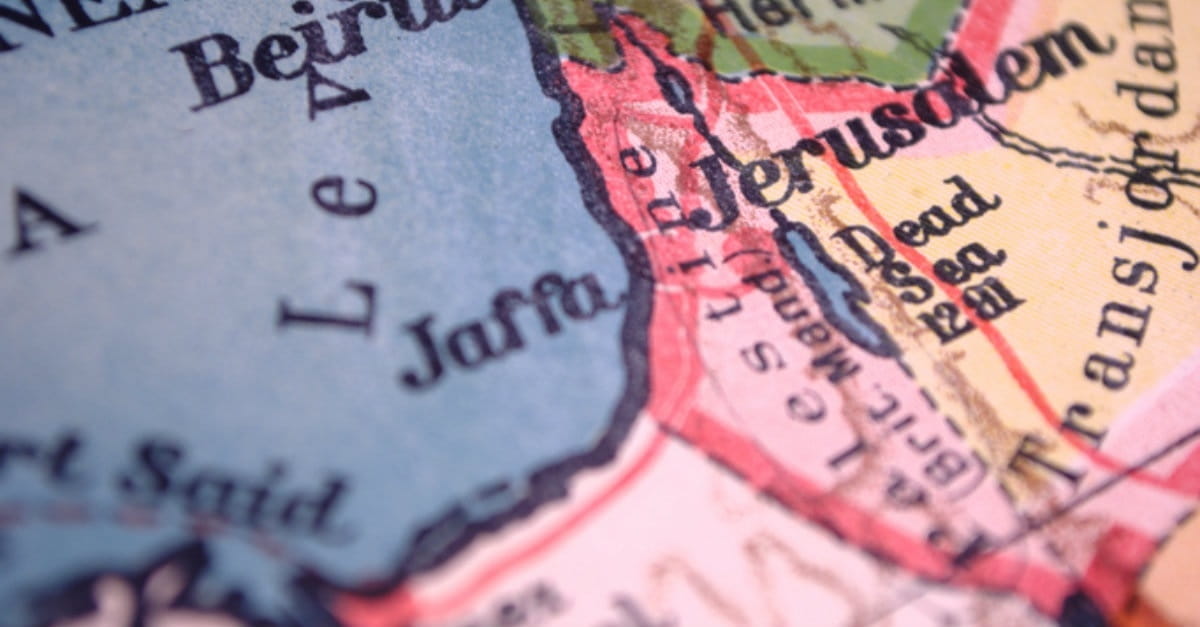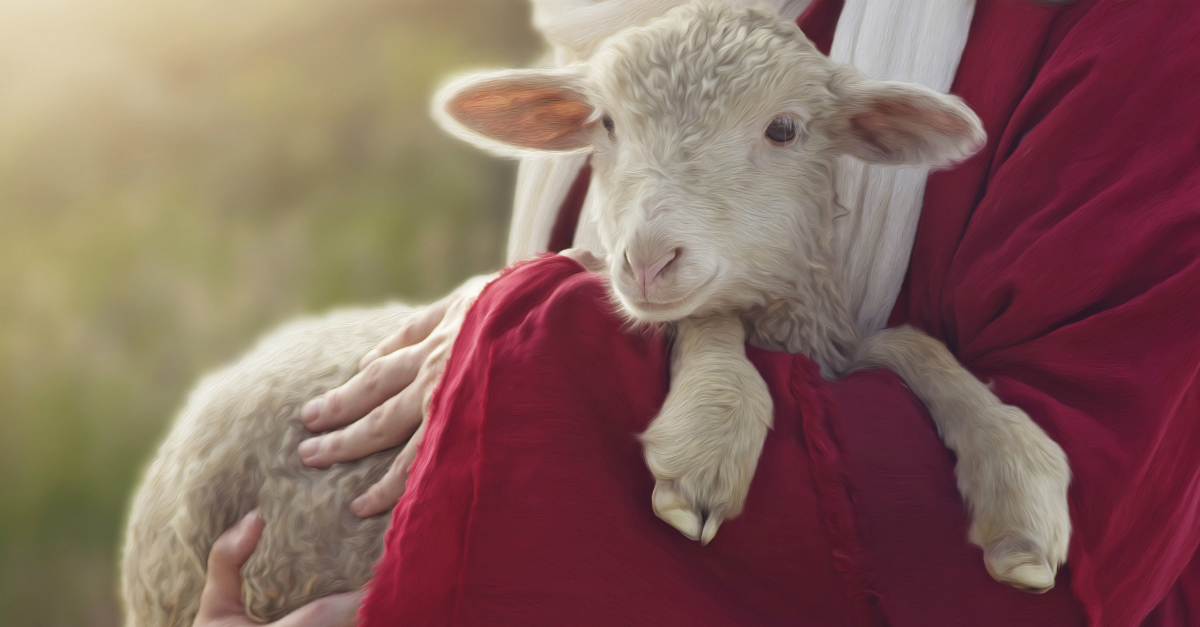What Is Mount Zion and Why Is It So Important?
Share

At the highest point in Jerusalem, just outside the walls of the Old City, lies modern Mount Zion. Every year hundreds of thousands of tourists flock to this ancient locale to see representations of Biblical sites like the tomb of David, the Last Supper Room, and the burial place of a Mary. But even if you never have the privilege of visiting the Holy Land, you can witness a breathtaking view of God’s beauty and majesty as it flows from Mount Zion, through Scripture and time.
The first time the word Zion is mentioned in the Bible is in 2 Samuel 5:7, when “David captured the fortress of Zion—which is the City of David.” However, this area of mountainous land that David captured and claimed for the Lord as Zion was mentioned in scripture well before David’s conquest.
After the first temple was built on Mount Moriah, it became known as Mount Zion. Though today the location of Mount Zion refers to a hill on the south side of Jerusalem’s Armenian Quarter, the ancient Jebusite Mount Zion encompassed all of Jerusalem, including the Temple Mount.
Upon this hilly range of sacred land, Scripture shows a rich heritage of God’s redemptive work even before the name Zion surfaced. There, Abraham agreed to do the unthinkable; he bound his only son and prepared to sacrifice him, having faith that God would instead, “provide Himself a lamb for a burnt offering” (Genesis 22:1-24). On this mountain, Jacob had his dream that allowed him to climb to Heaven (Genesis 28:11-1). David purchased the threshing floor of Ornan the Jebusite and sacrificed oxen to atone for his sin on this mountain (1 Chronicles 21:14-18). And it’s there that Solomon built the magnificent temple of the Lord (2 Chron 3:1).
These divinely orchestrated victories were just a warmup and foreshadowing of miraculous events to come on this hill. When Zion got its name it also inherited a much larger identity based on a Davidic covenant that would transform this temporal mountain into an eternal city (Psalm 89:3-4, 29, 35-37; 132:11-18).
This covenant becomes key in our understanding of the true significance of Mount Zion and all it stands for. Michael Lawrence puts it this way in What Is the Davidic Covenant? “When God establishes the covenant with the nation of Israel, he establishes himself as king. Israel is to have no other king other than God. But in the law itself, God makes provision for the day in which they will have a human king, a king who would not replace God, but represent God to the people. That comes to fulfillment with King David.”

Photo credit: ©Getty Images/Matthew Brosseau
What Does the Bible Say About Mount Zion?
The word Zion appears 152 times in the Old Testament, seven times in the New Testament, and is not only used to describe the mountain. The Bible describes Zion as:
The City of David (2 Samuel 5:7, 1 Kings 8:1, 1 Chronicles 11:5)
The city of Jerusalem (Isaiah 33:20, Isaiah 40:9, Psalm 51:18)
The entire Jewish nation (Isaiah 33:14, Zechariah 9:13)
The Millennial Jerusalem (Joel 2:32, Isaiah 2:2-3)
The eternal or Heavenly Jerusalem (Hebrews 12:22, Micah 4:7, Isaiah 35:10)
Scripture is also full of powerful, poetic verses that give us a clue about the source of Mount Zion’s vitality and true beauty:
“Great is the Lord, and most worthy of praise, in the city of our God, his holy mountain. Beautiful in its loftiness, the joy of the whole earth, like the heights of Zaphon is Mount Zion, the city of the Great King. God is in her citadels; he has shown himself to be her fortress” (Psalm 48:1-3).
"The LORD roars from Zion and thunders from Jerusalem; the pastures of the shepherds dry up, and the top of Carmel withers" (Amos 1:2).
“It is as if the dew of Hermon were falling on Mount Zion. For there the LORD bestows his blessing, even life forevermore” (Psalm 133:3).
When we explore scriptures that describe Zion, we gain a clearer understanding of who God is. For more information about what the Bible says about Zion check out Mount Zion in the Bible - Scriptures and Meaning.
Why Is Mount Zion Important?
Mount Zion is not just an important historical and spiritual landmark for Israel. From the time the ark of the covenant was moved into the City of David, then later to the temple that Solomon built, Zion became a hub of worship that represented the presence of God.
“Sing the praises of the LORD, enthroned in Zion; proclaim among the nations what he has done” (Psalm 9:11).
“The Mighty One, God, the LORD, speaks and summons the earth from the rising of the sun to where it sets. From Zion, perfect in beauty, God shines forth” (Psalm 50:1-2).
This precious gift of His presence is not limited to those of Jewish descent. When we accept Christ as our savior we are grafted into the inheritance of Zion as our place of refuge, protection, and communion with God.
“But you have come to Mount Zion, to the city of the living God, the heavenly Jerusalem. You have come to thousands upon thousands of angels in joyful assembly, to the church of the firstborn, whose names are written in heaven. You have come to God, the Judge of all, to the spirits of the righteous made perfect, to Jesus the mediator of a new covenant, and to the sprinkled blood that speaks a better word than the blood of Abel” Hebrews 12:22.

Photo credit: ©Getty Images/Kristi Linton
What Does Mount Zion Symbolize?
From Zion, all God’s children can obtain an intimate, sacred view of the Almighty—as He was, as He is, and as He will be. (Revelation 1:8) Zion is the essence, foreshadowing, and symbolism of the Kingdom of Heaven.
“While the Kingdom of Heaven is real, a physical entity begun with a literal cornerstone, Jesus is the metaphorical equivalent. He is the point of reference from which Zion is built in one’s heart, as important to a Christian’s spiritual foundation and development as a stone to the foundations of the temple David’s son Solomon built,” says Candice Lucey in What Is the Meaning of Zion in the Bible?
Today, Christians have the privilege and honor of dwelling in Zion which is the Kingdom of Heaven or God’s presence—through the blood of Jesus that was shed for us on Calvary. But our present, glorious walk in Zion is nothing compared to the future glory that will be revealed. Now, we witness Zion from an incomplete vantage point. As “through a glass, darkly.”
A day is coming when we will enjoy the fullness of God’s presence when we see Him “face to face” in the eternal Zion.
“Many peoples will come and say, “Come, let us go up to the mountain of the LORD, to the temple of the God of Jacob. He will teach us his ways, so that we may walk in his paths.” The law will go out from Zion, the word of the LORD from Jerusalem. He will judge between the nations and will settle disputes for many peoples. They will beat their swords into plowshares and their spears into pruning hooks. Nation will not take up sword against nation, nor will they train for war anymore” (Isaiah 2:3-4).
Jesus is the fulfillment of the Davidic covenant that transformed Mount Zion into an eternal city. And on Mount Zion, we will live in His Holy presence forever.
Additional Sources
https://www.britannica.com/place/Zion-hill-Jerusalem
https://free.messianicbible.com/feature/city-david-struggle-mount-zion-city-great-king/
https://www.jewishvirtuallibrary.org/mount-moriah
https://www.hebrew4christians.com/Scripture/Parashah/Summaries/Vayetzei/Ladder/ladder.html
Photo credit: ©Getty Images/John Theodor